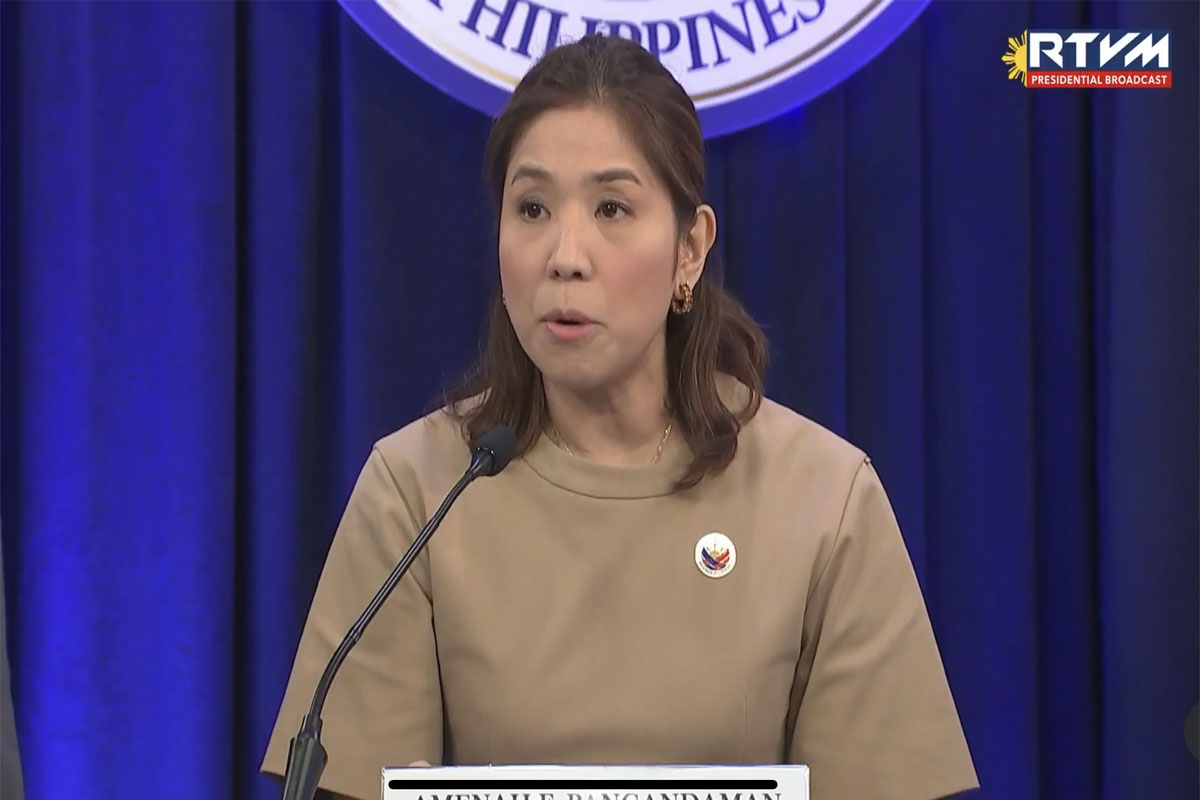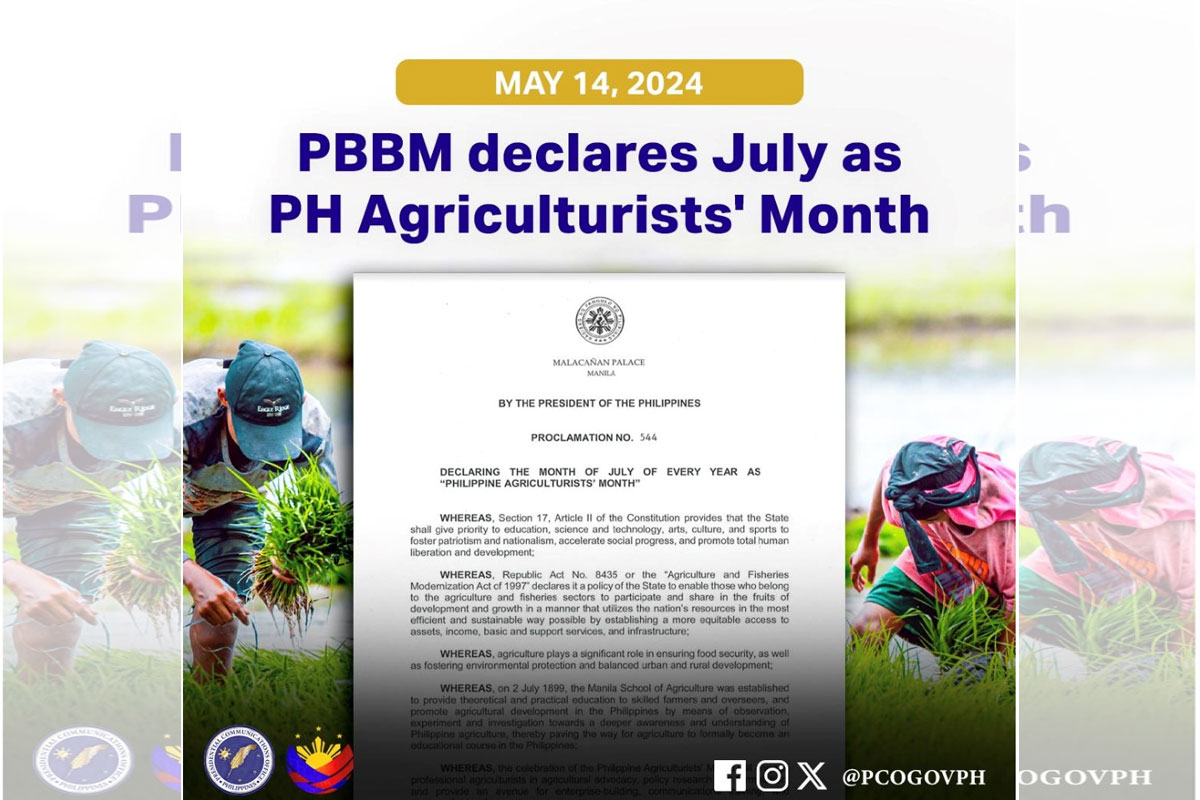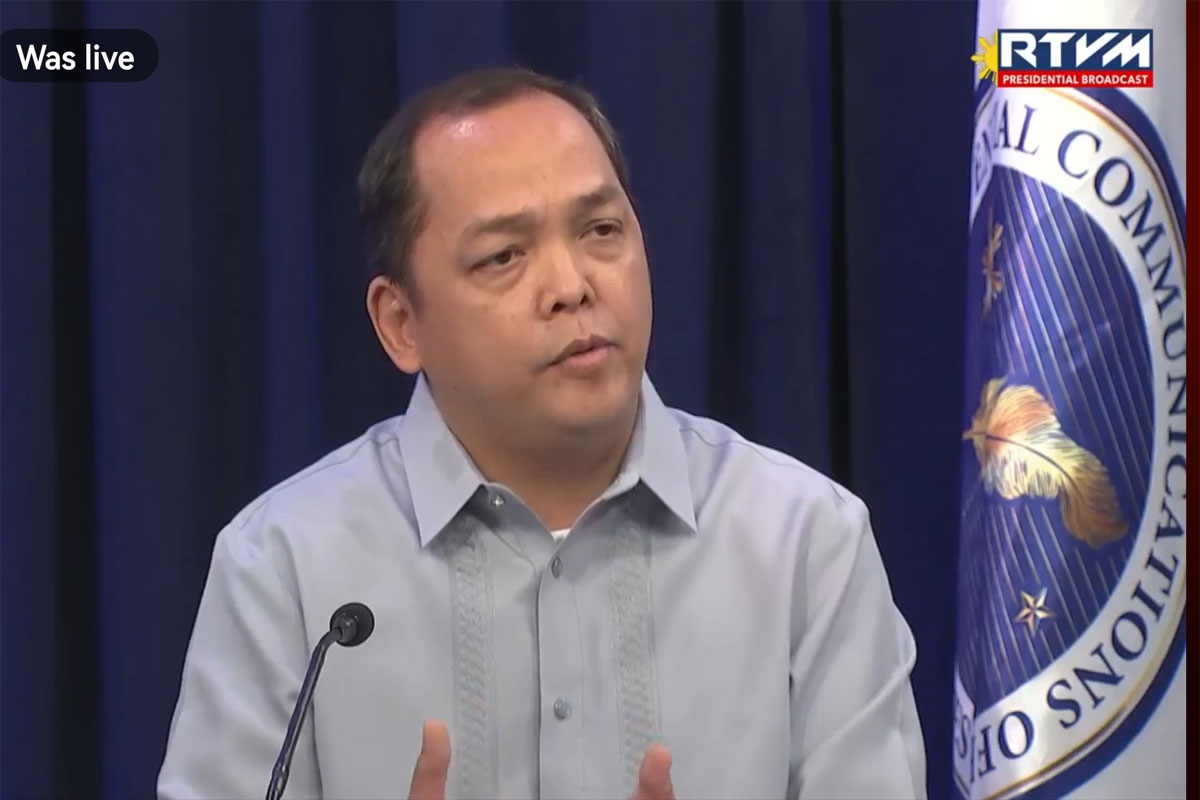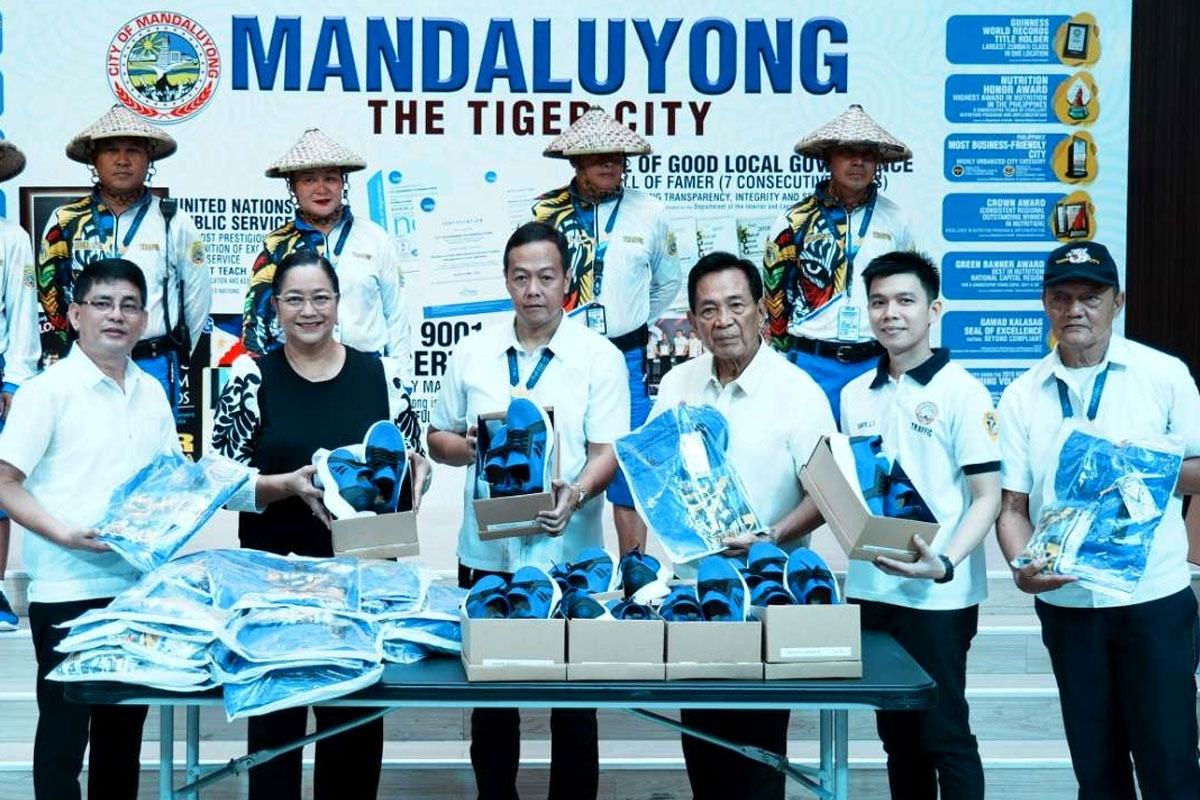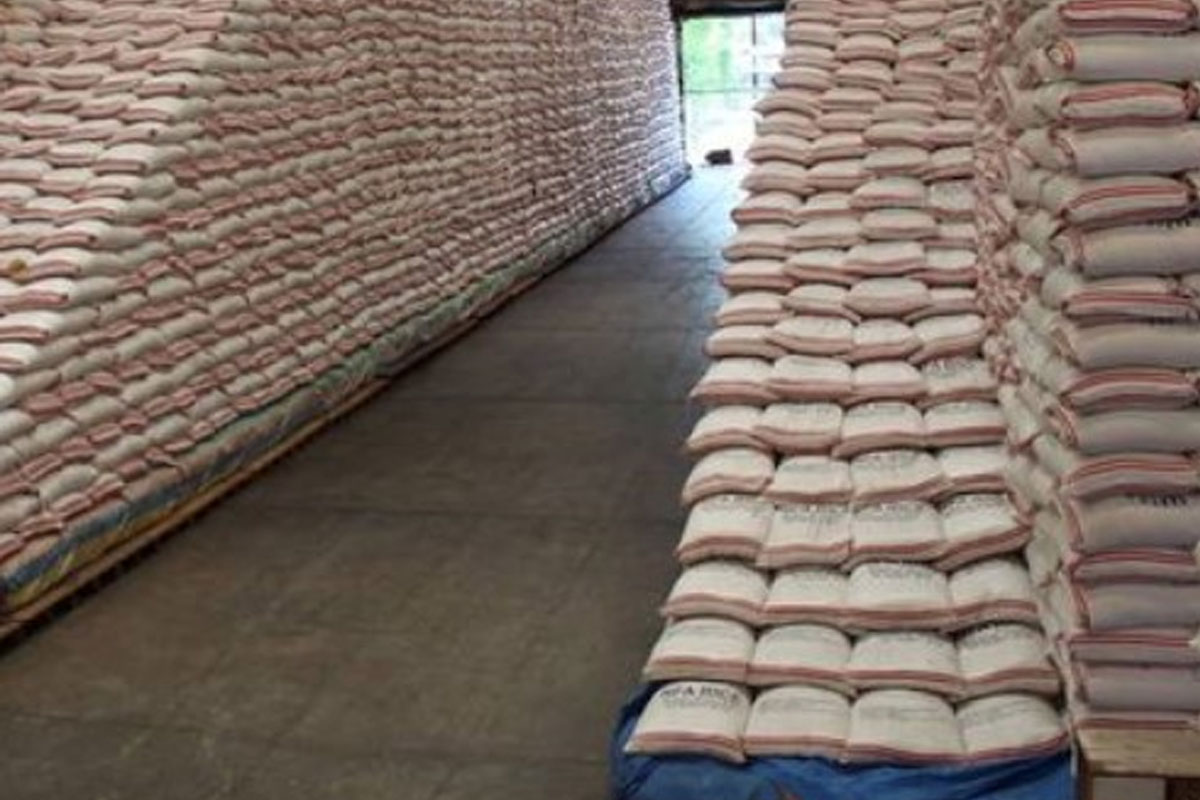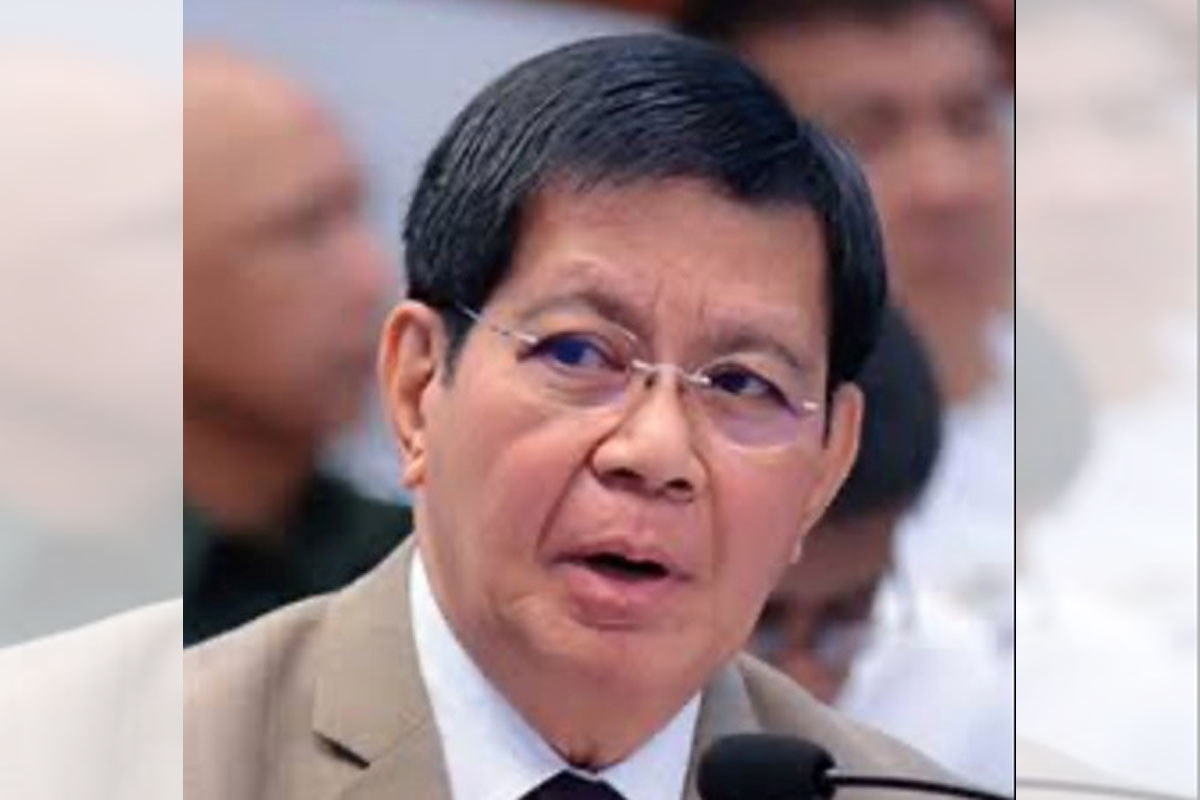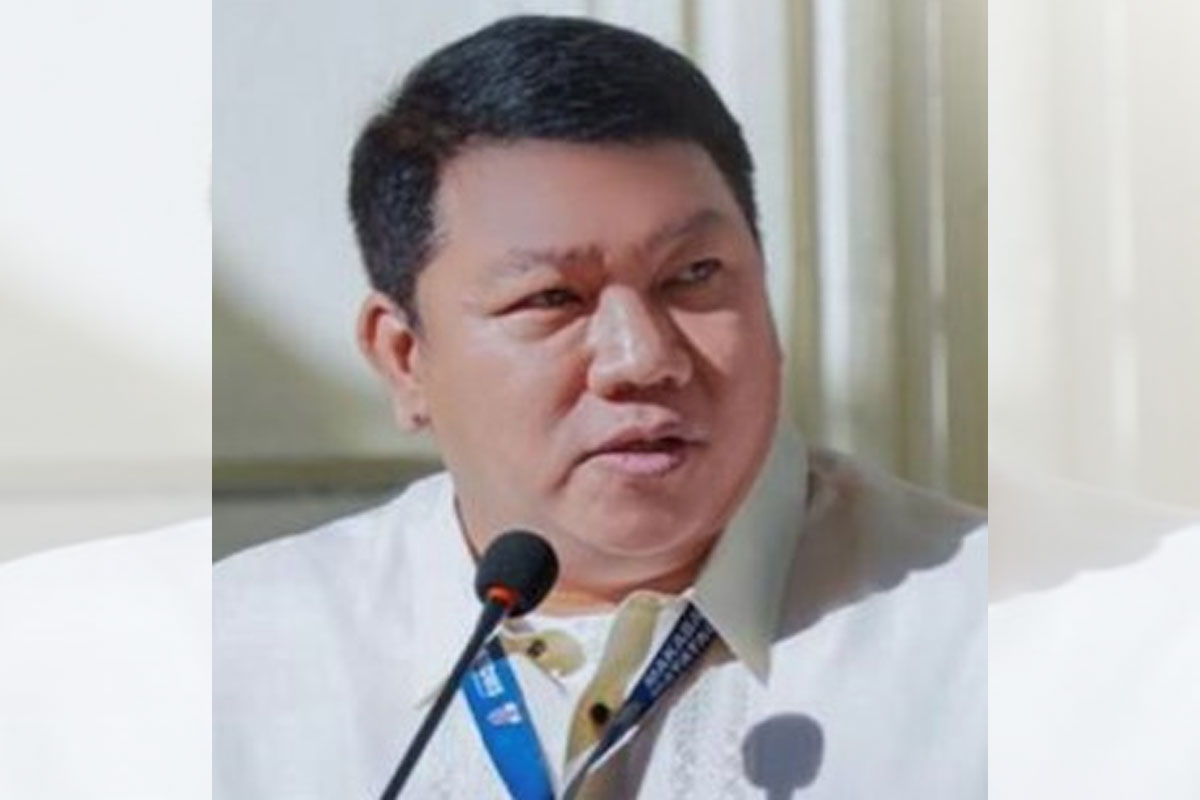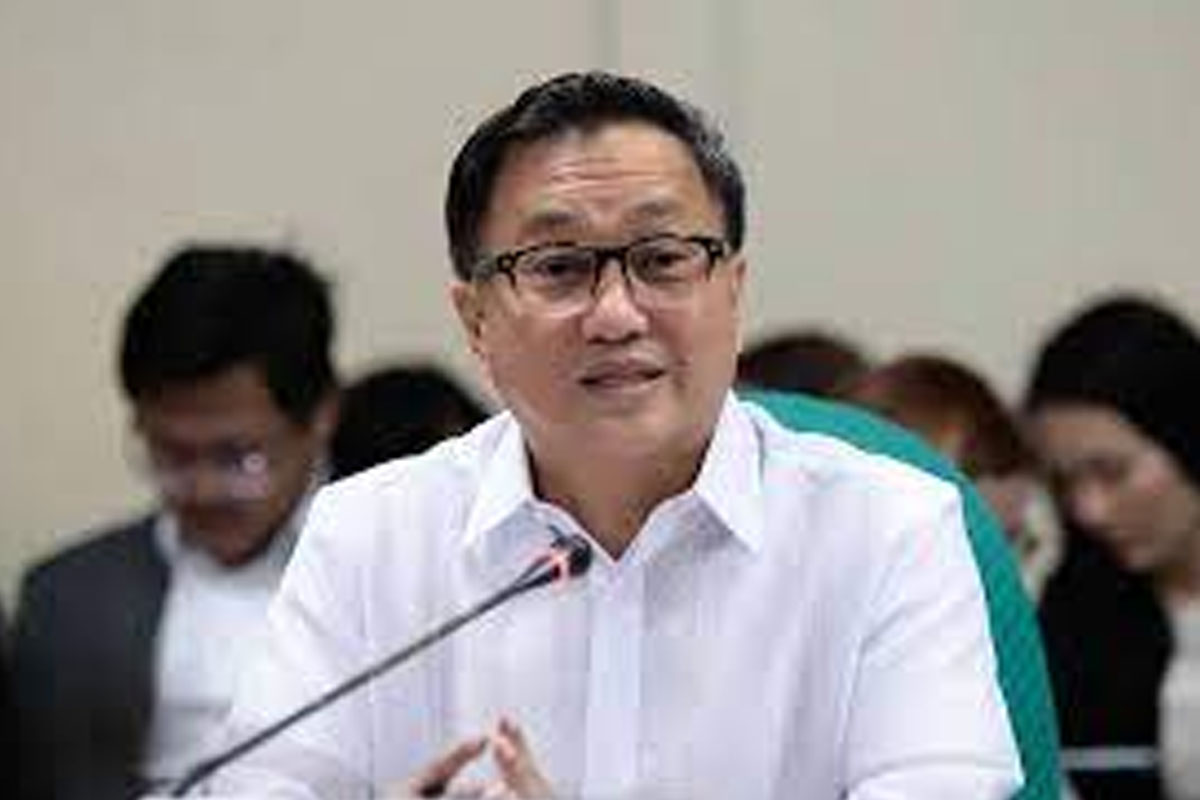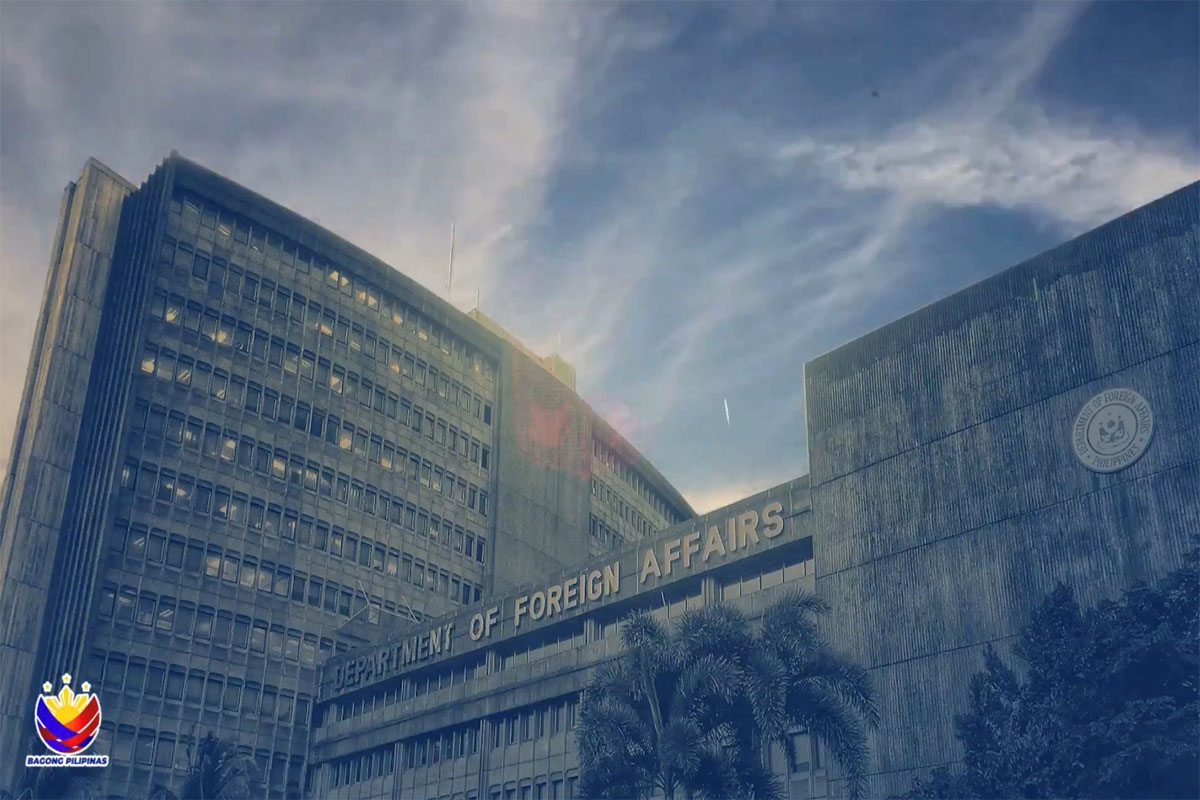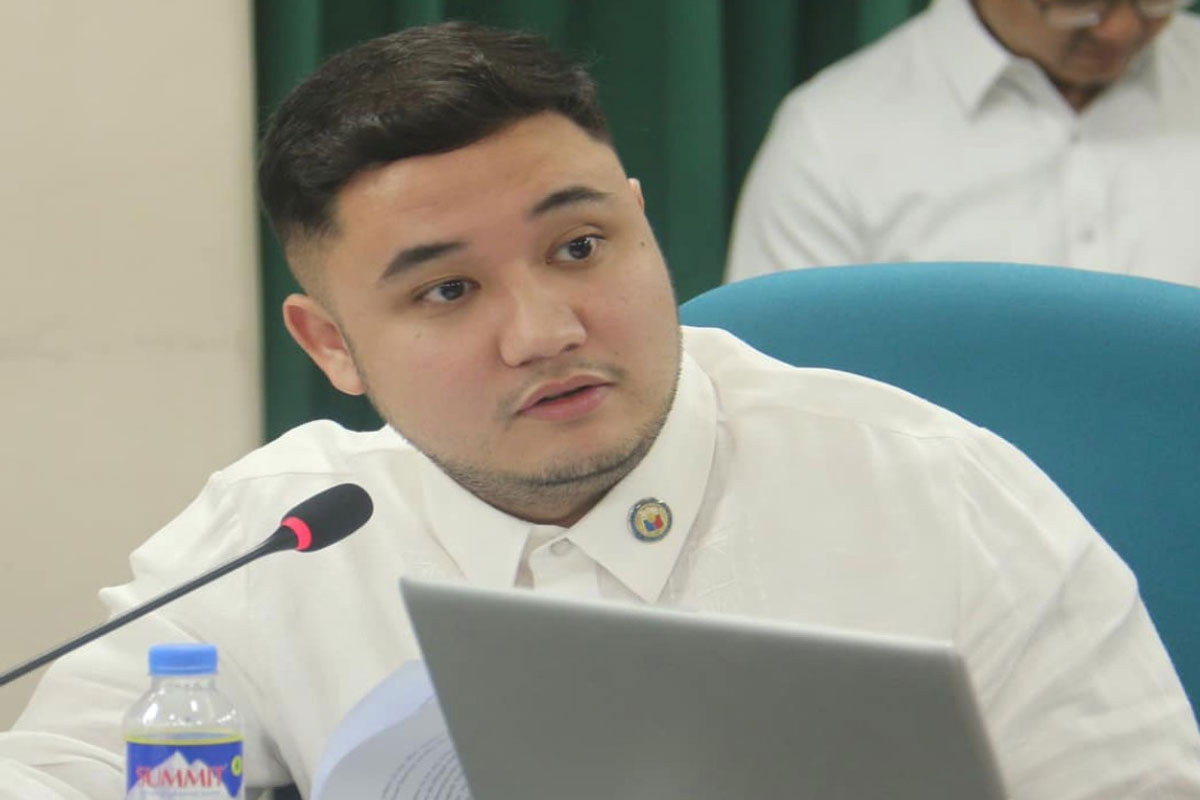
NUP back latest push for constitutional reforms
THE National Unity Party (NUP) in the Congress has given its full backing to the latest push for constitutional reforms, with all of its lawmaker-members voting for a priority legislation of the House leadership on the establishment of a hybrid Constitutional Convention (ConCon) tasked to ditch the inward-looking provisions of the 1987 Charter that limit foreign participation—and impede investments from abroad—in Philippine businesses, according to Camarines Sur Rep. LRay Villafuerte.
“In a show of unequivocal support for the priority measure on Charter Change of the House leadership led by Speaker Martin (Romualdez), all of our 45 NUP members in the House have voted for the resolution establishing later this year a 251-member Con-Con to study and propose changes to the economic provisions of our 1987 Charter. Such outdated provisions that need a makeover have scarred the Philippines as among the world’s most restrictive economies when it comes to FDIs (foreign direct investments,” said Villafuerte, the president of the NUP that is the biggest power bloc in the bigger chamber, next to the Romualdez-led Lakas-CMD party.
“An anachronism in this era of a borderless world and disruptive technology, our 36-year-old, inward-looking Constitution has been a big turnoff for international investors who seek far greater participation in Philippine businesses,” Villafuerte, who has long advocated for Charter change, said. “This explains why we have yet to see the high level of FDI inflows enjoyed by certain neighboring countries that had liberalized their business environments, despite our investment-grade status for over a decade now and the Philippines’ rise as one of the region’s economic overperformers pre- and post-pandemic.”
Although there was a 40% jump in FDI inflows to $7.9 billion in the country in 2016, he said this paled in comparison to the investments generated that time by, for instance, Singapore ($53.9 billion), Vietnam ($12.6 billion) and Malaysia ($11.3 billion).
Villafuerte said, “The overwhelming vote for the resolution illustrates the broad consensus not only in the NUP but in most of the other political groups as well in the House on the urgency for constitutional reforms, as a way to sharpen our country’s global competitiveness as an investment haven and generate a much higher level of FDI inflows that would spell greater economic activity, create more—and better—jobs and improve the lives of our people.”
The former governor was referring to Resolution of Both Houses (RBH) No. 6—it aims to convene a hybrid, 251-member Con-Con—comprising elected and appointed delegates—that was passed last March 6 by a vote of 301-6 with 1 abstention.
The day after, the House passed on second reading House Bill (HB) 7352, which is meant to be the enabling law for RBH 6.
Based on four measures on Charter Change via the Con-Con route, including HB 4926 that was authored by Villafuerte, HB 7352 is set for third and final approval this week by the House, and then for transmittal to the Senate.
“NUP members are one with the Speaker,” said Villafuerte, that additional FDIs are needed to sustain our country’s economic growth momentum, and that tweaking the Constitution could be—in Romualdez’s words—the “final piece in the puzzle” of improving the Philippines’ economic and investment environment.
“The NUP bloc in the House voted 100% for RHB 6 on the strength of our belief in the resolution’s view that constitutional reform on economic provisions “has been identified by reputable business and economic groups as one of the key policy instruments that needs to be implemented, and is now long overdue.”
Moreover, Villafuerte said, there is more reason for the Senate to pass the Con-Con measures soon enough, said Villafuerte, now that Chairman George Garcia of the Commission on Elections (Comelec) has told the media that the Comelec is ready should the balloting for Con-Con delegates be held simultaneously with the BSKE on Oct. 30.
“We are prepared. We are ready provided that there should be a law calling for the elections of (Con-Con) delegates …,” said Garcia in an interview, in explaining that the Comelec would need to print another 67 million ballots as it has already finished printing 91 million ballots for the BSKE.
Villafuerte pleaded to legislators in both chambers who continue to resist Charter Change “to support the lifting of our Constitution’s misplaced and outdated sense of nationalism as the Philippines, despite its newfound image as one of Asia’s economic stars, a dramatic increase in FDIs will never see the light of day in our country for so long as investors see the 40%-cap on foreign ownership or participation in local businesses as a nagging deal-breaker for investments.”
He appealed to senators to have “open hearts and minds” on long-needed constitutional reforms, assuring them that the Con-Con neither has a hidden agenda to marginalize them in the voting on would-be amendment proposals nor to abolish the Senate.
Villafuerte stressed that the House had passed the resolution and bill both calling for reforms by a Con-Con in lieu of the Congress convening itself into a Constituent Assembly (Con-Ass), precisely to eschew the kind of protracted debates that marred past attempts over whether senators and congressmen are required by the 1987 Charter to vote separately or jointly on would-be proposed amendments.”
Citing Bangko Sentral ng Pilipinas (BSP) data, Villafuerte noted that FDI inflows retreated by 23.2% from $11.98 billion in 2021 to $9.2 billion in 2022, when the Philippines emerged as an overperformer in the region despite the lingering pandemic.
According to Moody’s Investors Service’s earlier projections, the Philippine economy is expected to grow by 6.4% in 2023, the fastest in the Asia-Pacific region, as against the estimated 6.1% print of Vietnam, 5.1% of China, 4.7% of Indonesia, and3.9% of Thailand.
Villafuerte said that even President Marcos’ economic managers apparently expect no significant reversal of this FDI downtrend in the near future as they had reportedly slashed their FDI target for 2023 to $11 billion from the original $12.5 billion.
Fending off the claims by certain Filipino businessmen belonging to the Philippine Chamber of Commerce and Industry (PCCI) and the Philippine Exporters Confederation Inc. (PhilExport) that constitutional reform by a Con-Con is too costly and unnecessary—because then-President Duterte had already signed four investment-friendly laws to attract foreign capital—Villafuerte said that “Charter change should be considered not as an expense but as a needed investment for future higher growth,” and that “the four measures could never guarantee greater FDI inflows because they are barred from letting foreign investors gain 100%-control of local businesses.”
These new pro-investment measures that certain PCCI and PhilExport officials were referring to are the Corporate Recovery and Tax Incentives for Enterprises (CREATE) Act, which rationalized tax breaks and other incentives granted by investment promotion agencies (IPAs) to locators in ecozones; and the amendatory laws to the Foreign Investments Act (FIA), Public Service Act (PSA) and the Retail Trade Liberalization Act (RTLA).
Villafuerte, who had co-authored CREATE and the other amendatory laws on investments, said “these four investment-friendlier measures cited by PCCI and PhilExport officials are not likely anytime soon to trigger an inrush of FDIs akin to the sizeable levels streaming to our more economically vibrant neighbors in the region, because of the 60-40 ownership cap in the 1987 Constitutional that restricts foreign participation to 40% of Philippine businesses.”
As for certain local business leaders’ view that the Con-Con route is a costly exercise, Villafuerte said: “Cost should never be the No. 1 determinant on whether to push through or not with something as crucial to our sustainable, robust economic growth after the pandemic as substantially bigger FDI inflows.
As one leader of the Joint Foreign Chambers of the Philippines (JFC)—the umbrella group of the American, Australian-New Zealand, Canadian, European, Japanese and Korean business chambers and the Philippine Association of Multinational Companies Headquarters Inc. (PAMURI)—has stressed to senators, the level of FDI inflows is inversely proportional to a country’s restrictions on foreign investments, Villafuerte said.
Villafuerte was referring to the statement at a recent Senate hearing on Charter Change by Julian Payne, president of the Canadian Chamber of Commerce of the Philippines (CanCham) and who represented the JFC in that panel meeting, that “the best position would be to delete the economic provisions, all of them, from the Constitution….”
Payne told senators that, “The more restrictions you have, the less FDI you will have coming.”
He further said that the Congress and Malacañang should be given credit for the major “improvements” in the business environment with the enactment into laws of the amendments to the PSA, FIA and RTLA, but”…these are just first steps.”
Villafuerte said the estimated cost of electing delegates to the Con-Con and maintaining this nonpermanent body until it finishes its mandated job, will be more than offset by the expectedly huge and steady FDI stream once the constitutional ownership cap is lifted to allow foreigners to have 100% control of Philippine businesses.
The NUP president pointed, too, to the view by the New York-based finance and insurance company Fitch Solutions that amending the Philippine Constitution to open it to more FDIs would enhance our country’s prospects for long-term growth.
In a commentary, Fitch Solutions said “the investment environment in the Philippines for foreigners has historically been challenging due to restrictive rules,” as it pointed to the 40%-limit on foreign ownership.
Fitch Solutions concluded that, “”These challenges are further reflected in the Organization for Economic Cooperation and Development (OECD)’s foreign direct investment regulatory restrictiveness index which showed Philippines being ranked as the third-most restrictive out of the 84 countries in 2020,” and that “the potential removal of restrictions on FDI could see overall investment pick up over the coming years.
As for the point of certain legislators and other critics that the top issue that the Congress has to attend to is poverty reduction and not Charter Change, Villafuerte argued that reforming the restrictive economic provisions is an urgent concern, exactly because the main cause of poverty in the country is the lower-than-hoped-for inflow of FDIs, which are needed to boost economic growth and generate more jobs and higher incomes for most Filipinos.
“If you will look at it, one main source of poverty in the Philippines is our low agricultural output,” he said on TV. “There’s a lot of idle land in the country. We need foreign capital and foreign technology to harness such idle lands. So in order to have more foreign capital flowing into the country, we should allow ownership as part of the menu for investors.”
For Villafuerte, the incessant challenge of price spikes in foodstuff and other farm goods is rooted in a structural problem. “The purpose of agrarian reform was really to help our farmers. We supported that but, let’s admit it was a failure in the sense that when we gave lands to our farmers, there was no capital available for them to make their farms truly productive.”
As for the argument by critics that some of our more economically vibrant neighbors like Vietnam and China have progressed without allowing foreigners 100% ownership, he said they are forgetting that the business system in these economies are different from ours as these countries fall under one-party rule.
“But in democratic societies … First World countries like the United States and those in Europe, allow foreign ownership 100%,” pointing out that Singapore and Malaysia are very liberal on foreign participation in their businesses.
HB 7352 provides for the election of delegates at one for each of the existing legislative districts, who shall be chosen in a balloting to be held simultaneously with the BSKE on Oct. 30.
The Con-Con shall also have appointive delegates to be chosen by the Senate President and the Speaker, constituting 20% of the total number of delegates, with representatives picked from the judiciary, academe, medical and legal professions, business and labor, youth and women, farmers and fisherfolk, senior citizens and persons with disabilities (PWDs), and other basic sectors.
Under the bill, the proposed Con-Con will run from Nov. 21, 2023 to June 30, 2024.
During a recent television (TV) interview, Villafuerte said: “Sinabi ni President Marcos it’s not his priority. For me, that’s very positive for us, because he did not say it has to stop; he said it’s not a priority” of his Administration.
“We know that it’s not the priority of the Executive. But it’s the priority of the House. Why? Because we have already passed most, if not all, of the priority measures of the President. (The House has passed) most of the priority bills mentioned by the President in his SONA (State of the Nation Address). These are pending in the Senate. So what we want to tackle now is one priority of the House of Representatives,” which is Charter Change, said Villafuerte, who has filed his own versions of most of Mr. Marcos’ SONA priority bills that have already been passed by the bigger chamber.


